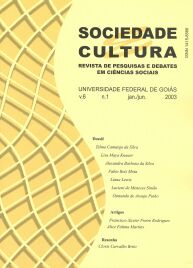Remesas multi-direccionales y etnografia viajera
DOI:
https://doi.org/10.5216/sec.v6i1.618Abstract
Durante varios anos de hacer investigaciones con Cubanos en New York y La Habana, informantes en ambos lugares me han dado dinero, cartas y paquetes para llevar “al otro lado”. Como otros viajeros y turistas, soy mensajera, testigo y vicária para personas separadas por geografía, economía y política. También personas en ambas ciudades me han dado videos, fotos y grabaciones, o me han pedido a documentar algo para enseñar “allá”. En este artículo, analizo algunas corrientes específicas de remesas y mandados: los que fluyen desde Cuba hacia afuera, o sea, remesas reversas; El papel de remesas materiales y intangibles en la evolución de transnacionalismo religioso, particularmente en las religiones de origen africano; y el significado de imágenes y sonidos – o sea, remesas audiovisuales. Palabras-clave: remesas, religiones afrocubanas, transnacionalismo, inmigrantes cubanos, diáspora, medios de comunicación.Downloads
Download data is not yet available.
Downloads
Published
2007-12-05
How to Cite
KNAUER, LISA MAYA. Remesas multi-direccionales y etnografia viajera. Sociedade e Cultura, Goiânia, v. 6, n. 1, 2007. DOI: 10.5216/sec.v6i1.618. Disponível em: https://revistas.ufg.br/fcs/article/view/618. Acesso em: 14 feb. 2026.
Issue
Section
Thematic Dossier
License
Authors who publish in this journal agree to the following terms:
- Authors retain the copyright and grant the journal the right of first publication, the work being simultaneously licensed under the Creative Commons Attribution License, which allows the sharing of the work with acknowledgment of authorship and of the initial publication in this journal;
- Authors are authorized to enter into additional contracts separately, for non-exclusive distribution of the version of the work published in this journal (eg, publishing in an institutional repository or as a book chapter), with acknowledgment of authorship and of the initial publication in this journal;
- Authors are allowed and encouraged to post and distribute their work online (eg, in institutional repositories or on their personal page) at any point before or during the editorial process, as this can bring productive change as well as increases the impact and the citation of the published work (see O Efeito do Acesso Livre).



